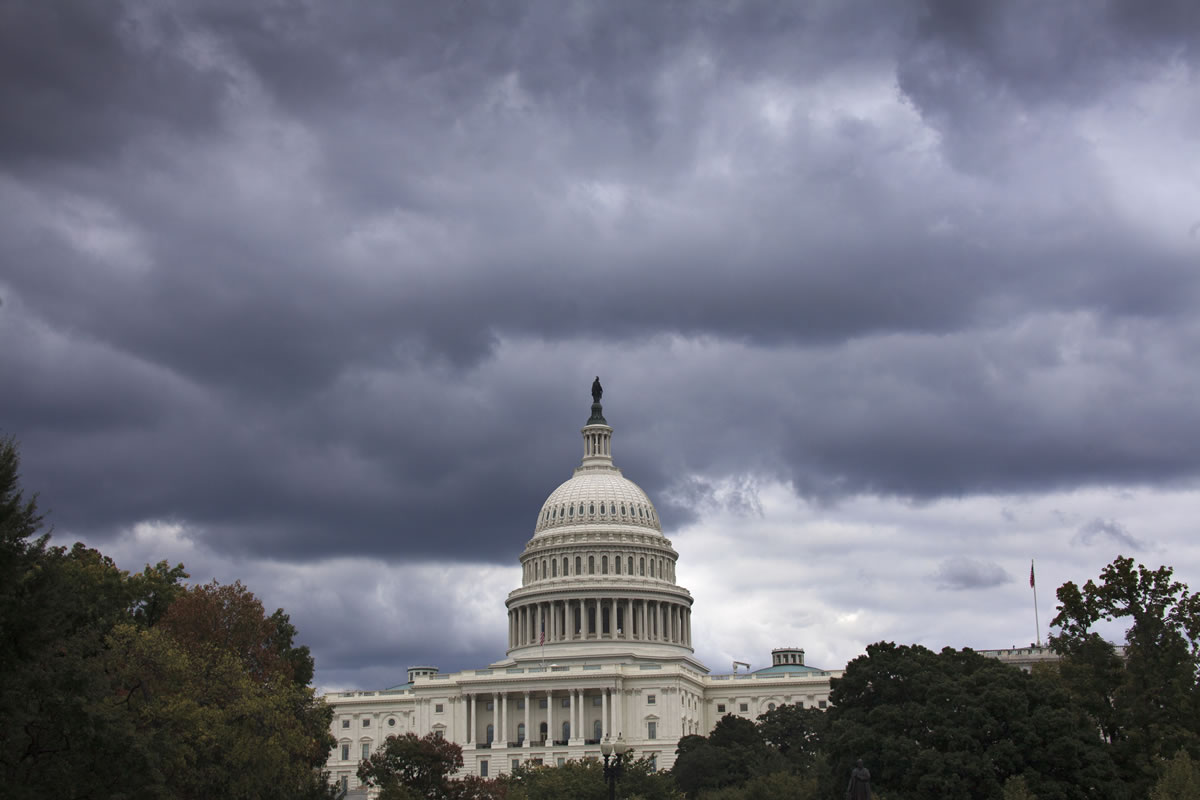WASHINGTON — Locked in a deepening struggle with President Barack Obama, the Republican-controlled House pushed legislation toward passage Saturday night that would impose a one-year delay on parts of the nation’s new health care law and repeal a tax on medical devices as the price for avoiding a partial government shutdown in a few days’ time.
Senate Democrats pledged to reject the measure even before the House began debating it, and the White House issued a statement vowing a veto in any event. Republicans are pursuing “a narrow ideological agenda … and pushing the government towards shutdown,” it said.
As the day wore on, even some Republicans said privately that Senate Majority Leader Harry Reid, D-Nev., held the advantage in the fast-approaching end game. If so, a House GOP rank and file that includes numerous Tea Party allies would soon have to choose between triggering the first partial shutdown in nearly two decades — or coming away from the confrontation empty-handed.
Undeterred, House Republicans pressed ahead with their latest attempt to squeeze a concession from the White House in exchange for letting the government open for business normally on Tuesday.
Rep. Darrell Issa, R-Calif., reacted angrily when asked whether he would eventually support a standalone spending bill if needed to prevent a shutdown. “How dare you presume a failure? How dare you? How dare you?” he said.
Apart from its impact on the health care law, the legislation that House Republicans decided to back would assure government agencies they had routine funding through Dec. 15. A companion measure headed for approval ensures U.S. troops are paid in the event of a shutdown.
The GOP spending measure did contain significant concessions, in some cases far exceeding what Republicans have been willing to support in the past. GOP aides said that most portions of the health law that already have gone into effect would remain unchanged. It would, however, give insurers or employers the right not to provide abortion coverage.
By repealing the medical device tax, the GOP measure also would raise deficits — an irony for a party that won the House majority in 2010 by pledging to get the nation’s finances under control.
The Senate rejected the most recent House-passed anti-shutdown bill on a party-line vote of 54-44 Friday, insisting on a straightforward continuation in government funding without health care-related add-ons.
That left the next step up to the House — with time to avert a partial shutdown growing ever shorter.
For a moment at least, the revised House proposal papered over a simmering dispute between Speaker John Boehner and the rest of the leadership, and Tea Party conservatives who have been more militant about abolishing the health law that all Republican lawmakers oppose.
It was unclear whether members of the rank and file had consulted with Texas Sen. Ted Cruz, the face of the “Defund Obamacare” campaign that Tea Party organizations are promoting and using as a fundraising tool.
In debate on the House floor, Republicans adamantly rejected charges that they seek a government shutdown.
Democrats disagreed vociferously. “House Republicans are shutting down the government. They’re doing it intentionally. They’re doing it on purpose,” said Rep. Donna Edwards of Maryland, as Republican lawmakers booed from their seats on the floor.
If lawmakers miss the approaching deadline, a wide range of federal programs would be affected, from the national parks to the Pentagon.
Some critical services such patrolling the borders, inspecting meat and controlling air traffic would continue. Social Security benefits would be sent and the Medicare and Medicaid health care programs for the elderly and poor would continue to pay doctors and hospitals.
The new health insurance exchanges would open Tuesday, a development that’s lent urgency to the drive to gut implementation of the law.



